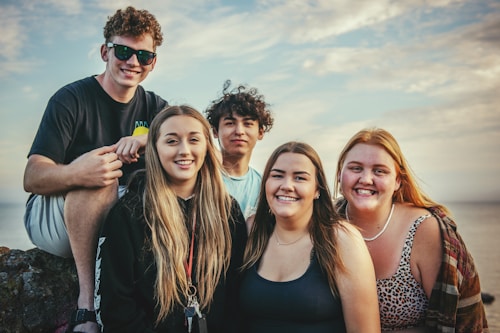Social media has become an integral part of teenagers’ lives, but its impact on mental health is a growing concern. Research indicates that excessive social media use can exacerbate anxiety and other mental health issues among teens.

Increased Anxiety and Depression
Studies show a significant correlation between high social media usage and increased anxiety and depression among teenagers. Teens who spend more than five hours per day on electronic devices are more likely to have at least one suicide risk factor compared to those who spend less time online. The constant need for validation through likes and follows can lead to feelings of inadequacy and low self-esteem (Harvard Graduate School of Education) (University of Utah Healthcare).
The Culture of Comparison
Social media often promotes a “culture of comparison,” where teens compare themselves to their peers based on curated online personas. This comparison can lead to negative self-image and heightened anxiety. Teens may feel pressure to present a perfect life, leading to stress and dissatisfaction with their own reality (Columbia Med) (Harvard School of Public Health).
Sleep Disruption
The use of social media, especially before bedtime, can disrupt sleep patterns. The blue light emitted by screens interferes with the production of melatonin, a hormone that regulates sleep. Lack of sleep is a known factor in increasing anxiety and depression. Studies have found that teens who spend more time on social media tend to get less sleep, which exacerbates mental health issues (Columbia Med) (Health News Florida).
Social Isolation
While social media can connect teens with friends and communities, it can also lead to social isolation. Teens might spend more time online at the expense of real-life interactions, which are crucial for developing social skills and emotional health. This isolation can intensify feelings of loneliness and anxiety (Harvard School of Public Health) (Health News Florida).
Cyberbullying
Cyberbullying is a significant risk associated with social media use. Negative interactions online can have severe emotional impacts, leading to increased anxiety and depression. LGBTQ youth and other marginalized groups are particularly vulnerable to online harassment (Columbia Med) (Harvard School of Public Health).
Balancing Social Media Use
It’s essential for parents and guardians to help teens balance their social media use with other activities that promote well-being, such as physical exercise, hobbies, and face-to-face social interactions. Encouraging mindful use of social media and fostering open communication about online experiences can mitigate some of the negative impacts (Harvard Graduate School of Education) (University of Utah Healthcare) (Harvard School of Public Health).
In summary, while social media has benefits, its overuse can significantly impact teens’ mental health by increasing anxiety, disrupting sleep, and contributing to social isolation and cyberbullying. Addressing these issues requires a balanced approach that includes monitoring and guiding teens’ social media use and promoting healthy offline activities.
Download StressBuddy
for Less Stress, Buddy
StressBuddy is free
